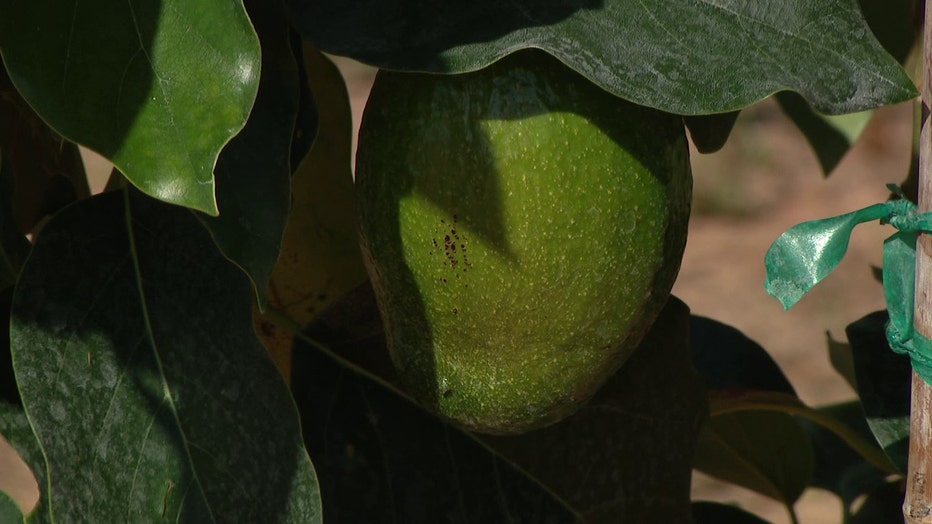Florida avocado growers continue to battle 'laurel wilt disease'
Disease threatening Florida's avocados
A disease known as laurel wilt is a growing problem, with the fungus having now killed avocado trees in every Florida county.
TAMPA, Fla. - This year’s avocado crop is looking "better than last year" as Florida growers continue to battle laurel wilt disease, according to experts.
"Laurel wilt is a fungus," said Jeff Wasielewski, a commercial tropical fruit extension agent with the University of Florida’s Institute of Food and Agricultural Sciences (UF/IFAS). "And it's killed over 300,000 commercial avocado trees."
According to the Florida Forest Service, laurel wilt was first documented in Florida in 2005. The disease has killed "susceptible tree and shrub species in every county in the state."
READ: 2023 marks hottest summer in over 2,000 years in Northern Hemisphere, study finds
For years, UF/IFAS researchers have been studying laurel wilt disease, which is spread by a small, female ambrosia beetle that burrows into an avocado tree and starts growing a fungus.
With this in mind, groves of Florida avocado trees – the bigger fruits with smoother, green skin – are highly managed now. Growers remove infected trees immediately.

"It looks like it's going to be good," Wasielewski said of this year’s crop. "Going to be better than last year."
"It's not the avocado apocalypse." he added.
MORE: World's largest plant to extract CO2 and turn it to stone opens in Iceland
Right now, UF/IFAS experts are studying different varieties, hoping to eventually find an avocado that’s tolerant of laurel wilt, which – as the name suggests – makes trees look wilted.
"You want to go out, check your tree. Look for any fruit," said Wasielewski. "If you don't have any fruit at this point, you're probably not going to get any. So in that case, you can go ahead and start pruning your tree for the next year."
Wasielewski recommended making sure your avocado trees are pruned and exposed to light, since ambrosia beetles thrive in the shade. If your trees do have fruit, Wasielewski recommended watering your trees due to hot temperatures in the forecast.
"You might want to turn it on for maybe 20 minutes just once a week," Wasielewski said. "That helps to pump up the fruit."
WATCH FOX 13 NEWS:
SIGN UP: Click here to sign up for the FOX 13 daily newsletter

